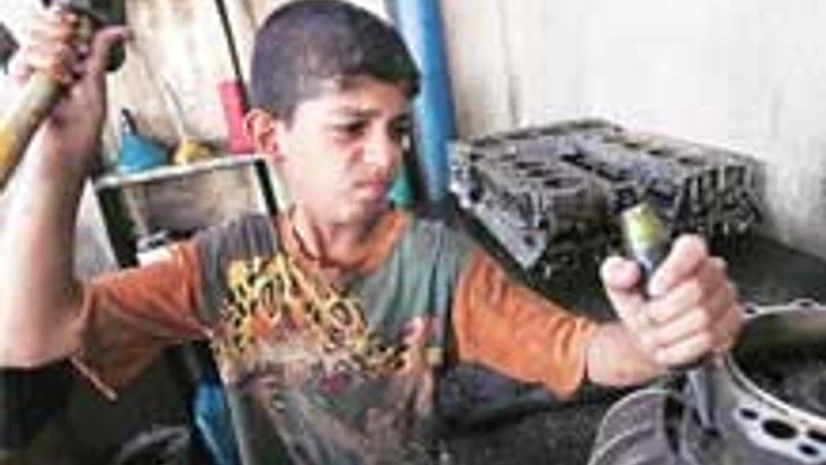The Cabinet on Wednesday approved a Bill to allow children below 14 years of age to work for family businesses and as a child artist after school hours, while putting a complete ban on all the other occupations.
The government has allowed these exemptions looking at the “socio-economic conditions” of the country. The move has left child rights activists fuming. According to them, it is as good as a “backdoor entry” for child labour.
The new amendments propose to make child labour a cognisable offence. Offenders would face imprisonment of up to three years and a fine of up to Rs 50,000 for an offence under the new law, after it is passed in Parliament. Parents or guardians would not be punished for the first offence but the penalty would be a maximum of Rs 10,000 for second and subsequent offences.
More From This Section
Children below 14 years of age will be allowed to help their family or family enterprises in non-hazardous occupations, but only after school hours and during vacations. In addition to this, children working as artists in films, television serials, advertisements, sports activities, etc may also be allowed to work after school hours. However, the Labour ministry has continued its ban on children working in circus.
The government said children assist their parents in farm or artisanship, which helps them “learn the basics of occupations". “Therefore, striking a balance between the need for education for a child and the reality of the socio-economic condition and social fabric in the country, the Cabinet has approved that a child can help his family or family enterprise, which is other than any hazardous occupation or process, after his school hours or during vacation,” the statement further read.
Activists have criticised the government for not giving a clear definition of family enterprises and said the current amendments were “not progressive”. “The current amendment is not progressive enough and not in line with the present times. The definition of family business is not clear. The law will virtually allow all the children less than 14 years of age to work in the name of family business.
Bangle-making industry, for instance, which is run by family enterprises in large numbers have abundance of child labour,” said Nishit Kumar, head, communications and strategic initiatives, Childline India Foundation.
“The law should be devised in such a way that it avoids misuse. It should be backed with necessary evidence to support that the child is assisting a family in its enterprise,” said Rituparna Chakraborty, co-founder and senior vice-president at TeamLease.
The present law -- Child Labour (Prohibition & Regulation) Act, 1986 -- prohibits employment of children below the age of 14 years in 18 occupations and 65 processes. Some of these include working in an automobile workshop, restaurants, hotels, ports, circus and various other industrial activities.
As the Child Labour (Prohibition & Regulation) Act does not put a complete ban on child labour, it is not aligned to the Right of Children to Free and Compulsory Education Act, 2009 which calls for free and compulsory education to all children in the age group of 6 to 14 years.
The previous government had introduced amendments to the CLPR Act in the Rajya Sabha in 2012 after which it was referred to a standing committee. Subsequently, after recommendations of the committee and taking into account the inter-ministerial and public view, the Labour ministry has drafted a new legislation.
To bring the child labour law in tune with international standards, the government has also defined “adolescents” in the new Bill. Children in the age group of 14-18 years will be prohibited to work in hazardous occupations and processes.
The International Labour Organisation conventions prohibit employment of persons below 18 years, in work which is likely to harm health, safety and morals.

)
